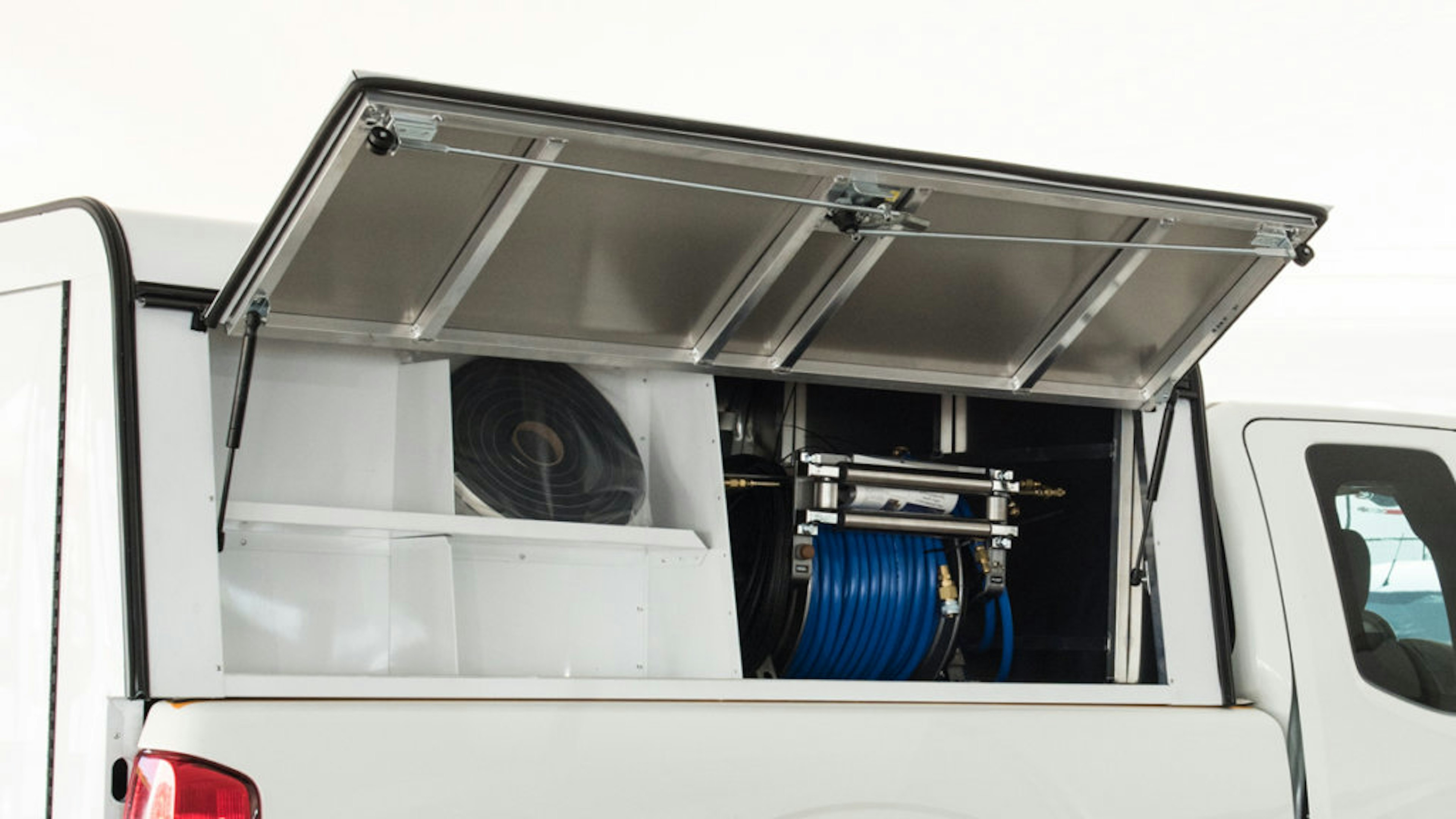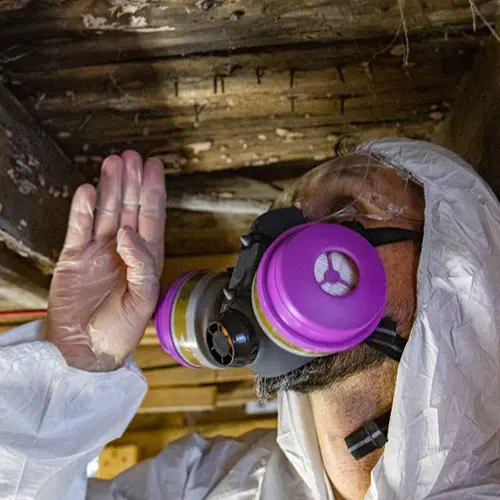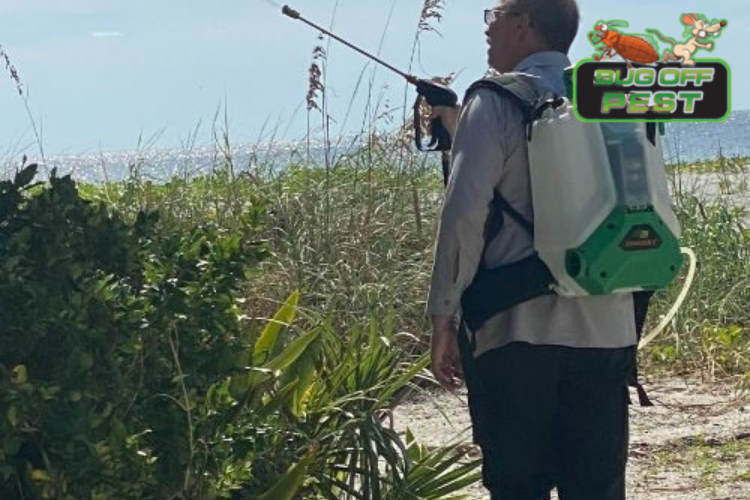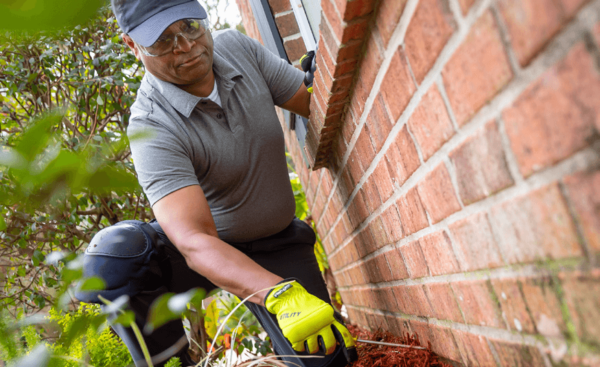Trusted Cockroach Exterminator Port Charlotte to Stop Infestations in Your Property
Discover the Significance of Pest Control in Maintaining a Healthy And Balanced Atmosphere and Therapy Methods

The Function of Pests in Environments
Pests, commonly seen only as nuisances, play a complex role in environments that is essential for maintaining environmental balance. They contribute significantly to different eco-friendly processes, including pollination, nutrition biking, and pest control. For circumstances, lots of insect species, such as bees and butterflies, are necessary pollinators for a large range of plants, which consequently sustains biodiversity and food production.
Additionally, bugs work as target for countless killers, developing a crucial link in food webs. This interdependence makes certain the survival of numerous varieties and aids manage populaces within ecosystems (Termite treatment Port Charlotte). Furthermore, decomposer pests, such as certain beetles and fungi, are important in breaking down organic matter, thus enriching dirt and facilitating nutrition recycling.
Conversely, while pests can be advantageous, their overpopulation or intrusion right into non-native atmospheres may disrupt these ecological features. This intricacy highlights the significance of understanding parasite dynamics, as effective bug monitoring approaches need to consider both their ecological duties and potential effect on human activities. Stabilizing pest existence while minimizing injury is necessary for protecting the honesty of ecological communities and making sure agricultural performance.
Health And Wellness Risks Related To Insects
The visibility of insects in various atmospheres extends past their ecological duties, as they likewise posture considerable wellness dangers to pets and humans. Lots of parasites, consisting of parasites, rodents, and insects, are service providers of diseases that can have severe wellness implications. As an example, rodents are recognized to transmit hantavirus and leptospirosis, both of which can result in extreme respiratory and renal problems, specifically.
Insects such as ticks and insects are infamous for spreading out vector-borne conditions like jungle fever, dengue fever, and Lyme disease. These health problems can cause high morbidity and mortality rates, particularly in at risk populations. Additionally, insects like insects and roaches can aggravate allergic reactions and asthma, adding to respiratory system troubles in people, specifically those with pre-existing problems.
In addition, the visibility of parasites can result in emotional stress and discomfort, impacting overall well-being. Contamination of food and surface areas by parasite droppings and continues to be can bring about foodborne illnesses, highlighting the importance of maintaining hygienic problems. Recognizing the health and wellness dangers associated with parasites is critical in acknowledging the necessity of effective bug monitoring approaches to secure animal and human wellness.

Benefits of Effective Insect Control
Efficient bug control is necessary for keeping a healthy and balanced and risk-free environment, as it consistently reduces the numerous threats linked with bug invasions. One of the key advantages of efficient insect management is the reduction of carcinogen. Parasites such as roaches, rats, and mosquitoes are vectors for diseases that can influence both people and animals. By managing these populations, the possibility of disease transmission is considerably decreased.
Additionally, efficient pest control safeguards property and frameworks from damage. Lots of parasites, like termites and carpenter ants, can create substantial structural damage that might require pricey repairs. By proactively handling these house owners, invasions and businesses can safeguard their financial investments.
Another significant advantage is the enhancement of general quality of life. A pest-free environment adds to mental well-being and decreases tension related to infestations. Moreover, reliable parasite control fosters a safer environment for animals and kids, making sure that homes continue to be refuges devoid of hazardous chemicals and disease-causing organisms.
Typical Pest Control Techniques

In the world of pest monitoring, various strategies are employed to battle invasions properly. These methods can be generally categorized right into three primary strategies: cultural, mechanical, and chemical controls.
Social control involves customizing practices to decrease parasite survival, recreation, and establishment. This might consist of crop turning, proper cleanliness, and environment manipulation, which jointly create a setting less for pest spreading.
Mechanical control uses physical site methods to eliminate insects (Termite treatment Port Charlotte). Methods such as vacuum cleaners, obstacles, and catches are commonly used to directly remove pests from an area. This approach is particularly effective for managing rats and pests without using unsafe chemicals
Chemical control entails the application of chemicals to take care of bugs. These compounds can be categorized into herbicides, pesticides, and fungicides, each targeting particular sorts of pests. It is crucial to make use of these chemicals carefully, sticking to security guidelines and laws to lessen prospective harm to non-target varieties and the atmosphere.
Each insect control technique has its advantages and limitations, and often, an incorporated technique combining multiple approaches generates the very best lead to keeping a pest-free atmosphere.
Sustainable Parasite Administration Practices
Lasting bug administration practices incorporate a series of techniques developed to decrease environmental influence while successfully controlling parasite populations. These methods prioritize the usage of environmentally friendly approaches over chemical pesticides, thus lowering the risk of injury to non-target species, including beneficial bugs, wild animals, and humans.
Integrated Bug Monitoring (IPM) is a cornerstone of lasting techniques, combining organic, social, mechanical, and chemical strategies to handle parasites. Organic control involves introducing natural predators or bloodsuckers to subdue parasite populations. Cultural methods, such as plant turning and polyculture, interfere with pest life cycles and enhance environment strength.
Mechanical approaches, such as barriers or traps, can successfully protect against parasite access without chemical intervention. Additionally, preserving healthy and balanced ecological communities through proper soil administration, plant wellness, and biodiversity can normally mitigate pest issues.
Education and understanding are crucial parts, empowering individuals and communities to identify parasite risks early and carry out precautionary procedures. Termite treatment Port Charlotte. By promoting an alternative method that balances pest control with ecological honesty, lasting bug administration practices not only shield plants and frameworks yet additionally add to a healthier environment for future generations
Verdict

Comprehending the health threats connected with parasites is vital in acknowledging the necessity of reliable bug management methods to safeguard animal and human health and wellness.
Effective bug control is vital for keeping a healthy and secure environment, as it constantly mitigates the many risks connected with parasite infestations.Integrated look at here Bug Monitoring (IPM) is a foundation of lasting practices, integrating organic, social, mechanical, and chemical tactics to handle parasites. By understanding the role of bugs, recognizing involved wellness risks, and utilizing varied therapy strategies, a sustainable technique a fantastic read to pest monitoring can be achieved. Integrated Insect Monitoring (IPM) emphasizes an alternative method that mitigates injury to advantageous organisms while successfully regulating parasite populaces.